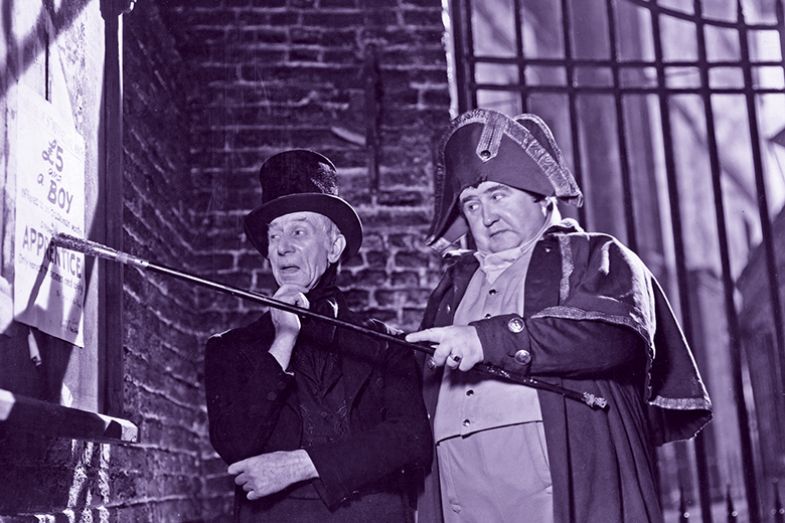Know your funding agency and believe in yourself
Academics all know that we must publish or perish. But there is another less famous but no less important guide to scholarly survival: win funding or perish. That is particularly true for the many disciplines, like mine, in which funding is a prerequisite for being able to perform publishable research – but many recruitment, tenure and promotion committees give almost as much weight to grant income as they do to scholarly output.
Sadly, there is no sure-fire way of being successful. All higher-visibility funding agencies are overwhelmed with high-quality applications far beyond their capacity to fund. This means that there will always be an element of stochasticity in how decisions are made, so being thick-skinned and persistent are critical. Don’t take rejection personally but, rather, see it as an opportunity to improve and try again.
Even in a world of single-digit success rates, there are actions you can take to improve your chances of being awarded that research grant. Clearly, writing a good proposal is critical. Take time to let your idea develop; for a very competitive programme, it can take me six months or more to write a proposal that I am proud of.
Visual presentation is also more important than you might imagine. However strong your scientific idea, sloppy presentation will give the impression that you are not a serious researcher and, at minimum, make reviewers more negatively inclined towards you. Put in the extra effort to make your proposal look good. Figures should be high resolution and attractively presented, and text should be checked and rechecked for typographical and grammatical errors.
You should also put in the extra effort to know your funding agency. I was frustrated year after year by my inability to get a specific grant, only to discover this year from a detail-orientated student that, according to the fine print, the agency doesn’t fund my area of research. Looking at the titles and, if available, the abstracts of previously funded research can be extremely helpful, as can asking colleagues for their own successful proposals to an agency you are interested in.
Of course, there are as many ways of presenting research as there are researchers – don’t clone anyone else’s style. But try to use it as a basis for learning what works.
In addition to this, I tend to ask numerous colleagues to read my proposal as critically as possible. It gives me invaluable insight into what is likely to irk the reviewer – to whom, I remind myself, I can’t answer back. Several rounds of review later, my proposal is so much stronger.
With some funding agencies, perversely, you often need to have already done most of the work for it to be funded. With others, large volumes of preliminary data can be fatal to the proposal, conveying the impression that it is not novel and innovative enough. Once again, talking to successful colleagues helps you get to know which of these approaches is preferred by the particular funding agency you are targeting. In my case, success has sometimes resulted from merely highlighting, based on other work, why I am qualified to move to a completely new area of research.
Finally, believe in yourself. Like recruitment and promotion panels, grant review panels are biased – explicitly or implicitly – towards candidates who have had significant success in attracting prior funding. So success is always likely to be elusive in the beginning, when you have no funding track record. But my PhD supervisor often reminded me that the only sure-fire way not to get a job or grant is to not apply for it.
Hence, in my first year as an independent investigator, I put in a large volume of grant proposals. All were unsuccessful, bar one: my application for a European Research Council starting grant. I had only applied to see what would happen, but winning such generous and prestigious funding turned out to be transformative at such an early stage in my independent career.
So don’t be afraid to make yourself part of the competition. But if you do so, make sure that you put in the best proposal you are able to – because, in a low-success environment, anything less is likely to be a waste of your very precious and limited time.
Lynn Kamerlin is professor of structural biology at Uppsala University.

Surf the tensions between your audiences
I work in a field (education) and a country (Australia) where the preference is for large-scale empirical, science-like and psychologically oriented research. But, like many doctoral graduates in my area, I have always done qualitative and relatively small-number studies – in my case, with a feminist and critical sociological bent. As a reviewer and as an applicant I have found that very different types of research can be successful in grant applications – provided that they give enough attention to why this research matters.
In writing applications, one of the trickiest issues is to surf the tensions involved in satisfying two types of assessors. You have to demonstrate the specialist sophistication that satisfies a reviewer in your own field and, at the same time, make a compelling, easy-to-read case for why your research should also matter to someone outside your direct field – or even hostile to it. You have to show that your proposal builds on and expands the work you have done before, but also that it is going somewhere new.
This is particularly important in Australia, where the education minister can and has refused to sign off on successful applications he doesn’t like, and where there is a push for research to be directly of value to the short-term “national interest”. My advice to applicants motivated by sociological, feminist or sceptical kinds of questions is not to give up on them but to put a lot of effort into the “why it matters”. Seek feedback on drafts of your application from different kinds of researchers.
For me, the big challenge was always to come up with the new idea: something that mattered, that would speak to current research but that would offer a new take. This could take me over a year of concentrated attention. An early success was for a qualitative longitudinal project as a new way of getting at school inequalities and identity formation before longitudinal projects became popular. Another was to research changes in curriculum by thinking historically and comparatively, when most research focused within one state, or only on the present policies.
The next problem is to work out how to design a project that is both doable and capable of actually getting at the issues. It may seem a safer bet to do the research before you apply, or to plan ever-bigger ways of counting things – but you should not underestimate the appetite of jaded reviewers for proposals that offer a genuinely new approach.
Assessors are looking for projects that will achieve something (this may be a critical breakthrough or conceptual advance). But they are also looking for approaches that offer a new way into big issues, not just ones doing more of the same. In my experience as a reviewer, too many applicants either overclaim or underclaim the “why it matters” story, or seem to only be offering a repeat of their past five projects. Avoid words like explore, which can be interpreted as an indication that you may not be focused enough to get at anything.
My reviewing experience also underlines the sad truth that it is easier to be thrown out than to be kept in. Technical breaches of the instructions are always punished, so read the instructions carefully.
And success depends a lot on track record: to those who have shall be given. So if you are not competitive to begin with, you need to either combine with a larger team that has a better record, or work your way up through alternative sources of funding.
On the technical side, I am always surprised at how often I read a 10-page project description and still don’t have a concrete sense of what the authors are actually proposing to do. The front-page short pitch matters a lot. Your 40-page application may have taken six months to craft, but if it can’t be read and appreciated in three minutes, forget it!
Lyn Yates is Redmond Barry distinguished professor emerita at the University of Melbourne.

Excite the reviewer – and quickly
In an era in which the average success rates for most grant programmes rarely exceed 20 per cent, the aim must be to lift your own personal strike rate well above that dispiriting figure.
To do that, it is crucial to know the system. A grant will typically be reviewed by three or four “experts” in the field. Their reports – possibly along with the applicants’ rebuttal – will then go before a panel, at which two members are typically tasked with leading the discussion. Unlike the reviewers, these so-called “introducing members” (IMs) will rarely have expertise in the exact area of the bid. They are chosen for their potential ability to take a high-level view and rank the 20 or more bids they might be assigned in each funding round. Usually, only the panel chair will have read all of the bids, although others chip in if they have read a particular bid that took their fancy.
Typically, when two separate panels are asked to rank a set of grants, they will agree about the top 10 per cent and bottom 5 per cent. Beyond that, the choice of who gets funded is, by definition, a stochastic process; very few applications nowadays are complete turkeys. The aim is to be in that top 10 per cent.
As a reviewer, my least important desideratum (because officials will often help decide) is whether the project is worth the kind of money the applicants ask for. Far more important is whether I believe the applicants can solve the question they pose with the strategy and methods proposed. But more important still is whether their question is one that I would wish to see solved. Fail on that and it is over.
So step one is to convince the reviewer of the desirability of solving the problem. If you don’t do it in the abstract, you will struggle: only a dedicated IM will save you, and, with far more good applications than can be funded, they have little incentive to do so. The widely cited advice to have your proposal read both by experts and non-experts is wise because they are surrogates for, respectively, referees and IMs, and you have to win over both.
Another good piece of advice is to start early. Typically, 80 to 90 per cent of proposals arrive within 48 hours of deadlines. But the earlier you start, the more you can incubate, get feedback, and polish, polish, polish. Use figures. A figure really is worth many words. Flow diagrams can help enormously.
Get into the mind of a reviewer. Ask yourself: “Do I find this a good and persuasive read, with a clear message of the exciting knowledge that will be uncovered? Will the IM mirror my excitement? And will they be convinced that I will be able to deliver?”
A typical project could be seen as either too trivial or too hard. Find the goldilocks level. Exciting tends to be hard. Preliminary data are especially valuable here, demonstrating that, yes, you can do these tricky experiments.
Perhaps the reviewers will still be unconvinced. This is where the rebuttal comes in. Be careful, though. It is sometimes hard not to state that referee X is a gibbering idiot who has all the intellectual abilities of a dehydrated asparagus shoot. But getting bad or even biased referees is inevitable and IMs are perfectly capable of spotting this. Keep them on your side by playing it straight.
You may still fail even then. But, pace Kipling, if you can lose, and start again at your beginnings, you will, in time, become a grantholder. And maybe many times.
Douglas B. Kell is research chair in systems biology at the University of Liverpool and a former chief executive of the UK’s Biotechnology and Biological Sciences Research Council.

Clarify your logic and enlarge your figures
There is no doubt that writing grant applications has become a lot more challenging than when I was an early career researcher. At least in the UK, it’s no longer just a case of having a smart idea, thinking it through and writing it up with clarity. There are many different aspects to consider, from impact to outreach. As a referee, the complexity of response required is just as demanding.
The pressure for the applicant is only piled on further by the increasing tendency for universities to use grant income as a crude metric for “excellence”. I can’t help but feel glad that retirement is just around the corner and I am spared this level of probably rather unproductive stress. When I applied for – and failed to get – my first grant, a former head of department told me he couldn’t see why I needed a grant anyhow. He’d never had one. I can’t recall whether he actually said string and sealing wax was all I required for my experiments, but that was the gist of it.
Having read many grants as a reviewer and panel member doesn’t help much: it’s easy to see what’s wrong, but much harder to see what’s right. Still, for what they are worth, here are my top five tips.
- Get someone else to read your application through before submission. You may think everything is crystal clear, yet assumptions may have crept in which are completely obscure to the reader. Logic may also not be totally solid: underlying hypotheses, for instance, may lurk without ever being spelled out. Such gaps will be obvious to someone who hasn’t spent months constructing the text.
- Resist telling the story of how you reached your hypothesis. Research is rarely linear and if you follow your personal historical path to set the scene it may come across as very odd to someone reading the application with fresh eyes.
- Take care that your references are up to date and comprehensive. There is nothing that puts a reviewer off more than suspecting you don’t really know the field well. An absence of references from within the past five years or a complete swathe of material missing does not confer confidence.
- Make sure any figures you include are not so small as to be impossible to read for the over-fifties without a magnifying glass. Make it easy for them to appreciate the points you are trying to make.
- Don’t be over-ambitious, promising everything. The panel will be doubtful if the proposal looks impossible to do with the resources requested.
Dame Athene Donald is professor of experimental physics and master of Churchill College, Cambridge.

Be brave enough to change direction
My best piece of practical advice is to apply annually for every grant available. That is especially important early in your career, when you need time off and you’re under pressure to get published.
Applying for grants while teaching and doing research is time-consuming, but there’s an immediate payoff. The short abstract required on grant applications helps you keep your eye on that book blurb and provides you with a sales pitch to potential publishers. If your application succeeds, the payoff is even greater. Even if the award is limited, the prestige is a worthwhile addition to your CV. Some colleges provide a supplement to major fellowships, and some fellowships allow you to postpone acceptance until you get leave time.
Ambition and confidence in your proposal are essential, even if they are somewhat unwarranted. Take my successful application for a National Endowment for the Humanities (NEH) grant in 1981, for a book on Elizabethan chivalry and the crisis of the aristocracy. I confidently proposed reviewing numerous historical documents, but didn’t really understand what archival research required. Only after seeing documents in the College of Arms (the London-based heraldic authority) did I realise that I didn’t know how to read secretary hand. So I photocopied reference works on early modern palaeography and learned to do so. This new skill enabled me to make some historical discoveries, publish an article and secure a fellowship from the American Council of Learned Societies to complete my second book in 1989.
My first book, published a decade earlier, had been a revision of my doctoral dissertation on Sir Philip Sidney. It was influenced by New Historicism before Stephen Greenblatt, one of my advisers, coined that term. And being slightly ahead of scholarly trends also worked well with my next two grants. I got a Guggenheim fellowship in 1992-3 for a project that focused on the succession crisis of 1603. The turn to religion was beginning as a corrective to New Historicism’s fixation on politics, and I made a similar shift.
I enrolled in an NEH Institute on Religion and Society in Early Modern England, and the increased knowledge it afforded me of reformation controversies, plus a more ambitious proposal, then secured a year-long Folger fellowship in 1996-7, resulting in my third book in 2002.
I got my last NEH grant in 2006-7, for a book on Shakespeare’s religion. But again, I changed directions midway through the project. I remained fascinated with often lethal reformation controversies but concluded that Shakespeare was more interested in dramatic performance than theology.
Although there is a certain comfort in making a career out of ploughing a particular furrow, my experience is that it pays to be resilient enough to alter your focus beyond your original proposal and to acquire new skills.
Richard C. McCoy is distinguished professor of English at Queens College and the Graduate Center, City University of New York.

Hone your sales pitch and tally up opportunity costs
I tend to think of my lab as a small business, with me as the entrepreneur at the helm – although I am probably closer to Del Boy Trotter than to Mark Zuckerberg.
This is just one of the many tortuous analogies I use to make sense of an academic career (because, let’s face it, academia doesn’t make much sense). Grants are the sales pitch that shore up the lab’s cashflow, and while I am not advocating passing off Peckham’s tap water as spring water, even genuine spring water won’t sell unless you market it properly.
As such, your grant applications have to target the customer. What complicates matters is that there are at least two different customers, with different requirements. Your sales pitch needs to be detailed enough to convince peer reviewers that you know what you are doing, but it also needs to be exciting enough to convince the panel to select your application ahead of other, equally scientifically valid, proposals. Here the lay summary is key. Sure, it is mislabelled: no lay person is ever going to read it. But it is your chance to sell the project to the panel.
Within a small business model, you also need to consider the cost of application. Our most precious commodity is our time. The endless hours absorbed by grant writing could be spent teaching, researching, writing papers or even having a life outside work!
The decision regarding whether to bear that opportunity cost should be taken in light of consideration of the chance of success versus the return if funded. Small grants with long application forms and a low hit rate should be ignored, no matter how desperate you get. I keep a tally of grants I have applied for, recording the grant value and the time invested. This has helped me to concentrate my efforts.
The sales pitch mentality stretches to how I review grants. I want to know what I am buying. First and foremost, I want to see a hypothesis. Not buried on page seven after the justification of resources, but on page one, line one, in bold. I then want my pulse quickened with a unique selling point. Why does the work need to be done? If it is a fundamental question, why does it need answering? If it is translational, how will answering it make the world a better place?
If that isn’t clear, no amount of technical competence will save you. So get out there and get selling!
John Tregoning is senior lecturer in the department of infectious disease at Imperial College London.
Register to continue
Why register?
- Registration is free and only takes a moment
- Once registered, you can read 3 articles a month
- Sign up for our newsletter
Subscribe
Or subscribe for unlimited access to:
- Unlimited access to news, views, insights & reviews
- Digital editions
- Digital access to THE’s university and college rankings analysis
Already registered or a current subscriber?










